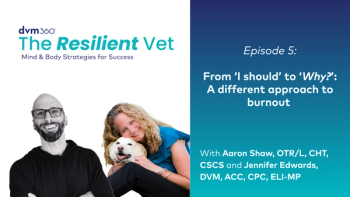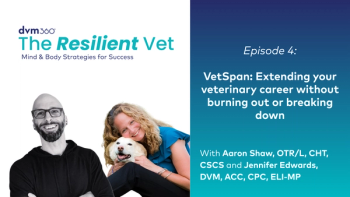
5 Steps to Develop Your Self-Care Plan
Use these five steps to develop and maintain your self-care plan throughout 2018.
You’ve probably heard the “self-care” buzzword from time to time, but what does it mean and how can you foster self-care in your busy life? It’s time to make a plan and stick to it.
Here are five steps to develop your self-care plan.
Step 1: Understand what self-care is.
If you don’t understand what
“Self-care is a way of giving back to ourselves in the form of doing activities that fuel us and that are just for us and not for anybody else,” said Marie Holowaychuk, DVM, DACVECC, critical care specialist and veterinary wellness advocate for Critical Care Vet Consulting.
RELATED:
- 3 Things About Wellness in the Veterinary Profession
- How to Make Healthy Habits, Break Unhealthy Habits
While the idea of self-care seems simple and easy enough to understand, this monumental aspect of life is often overlooked. Self-care isn’t selfish. Self-care isn’t unenjoyable or something that you force yourself to do. Self-care is understanding what you need to do to take care of yourself in order to be able to take care of others.
Now that you’re familiar with the definition, it’s time to evaluate your self-care at the current moment. Take this
You should be evaluating yourself within the
After evaluating your current self-care, did you notice any aspects where you could do better? Maybe you are doing great when it comes to your financial wellbeing — saving money every week for retirement, paying your bills on time, etc. — but you seem to be forgoing your physical wellbeing.
Create your
“Set goals that are specific, measurable, achievable, relevant and timely that we can accomplish,” Dr. Holowaychuk said.
Once you’ve set your plan in motion, the next step is to hold yourself accountable by measuring your success. Use this
You can also buy a physical calendar and give yourself a gold star every night you manage to sleep seven hours. Or choose a few coworkers in your veterinary practice who may also want to better their physical wellness and work with them so you can hold each other accountable.
When that date arrives, it’s time to revisit your goal. This is the most important step in your self-care plan because this is where you can see whether you have achieved what you set out to do, or if you need to make some adjustments.
Ask yourself, “How am I doing?” If your goal of sleeping seven hours each night has become a habit, you can set a new plan in place to reach a different goal.
Maybe you saw a need for improvement in your social wellbeing dimension when you took your self-care assessment, and you want to now focus on setting up a coffee date with a friend every week.
“The idea is that your self-care plan is always evolving,” Dr. Holowaychuk said, “It’s always changing, and sometimes we try a self-care plan and it doesn’t work for us — and that’s OK — but we find something else that does.
Newsletter
From exam room tips to practice management insights, get trusted veterinary news delivered straight to your inbox—subscribe to dvm360.





